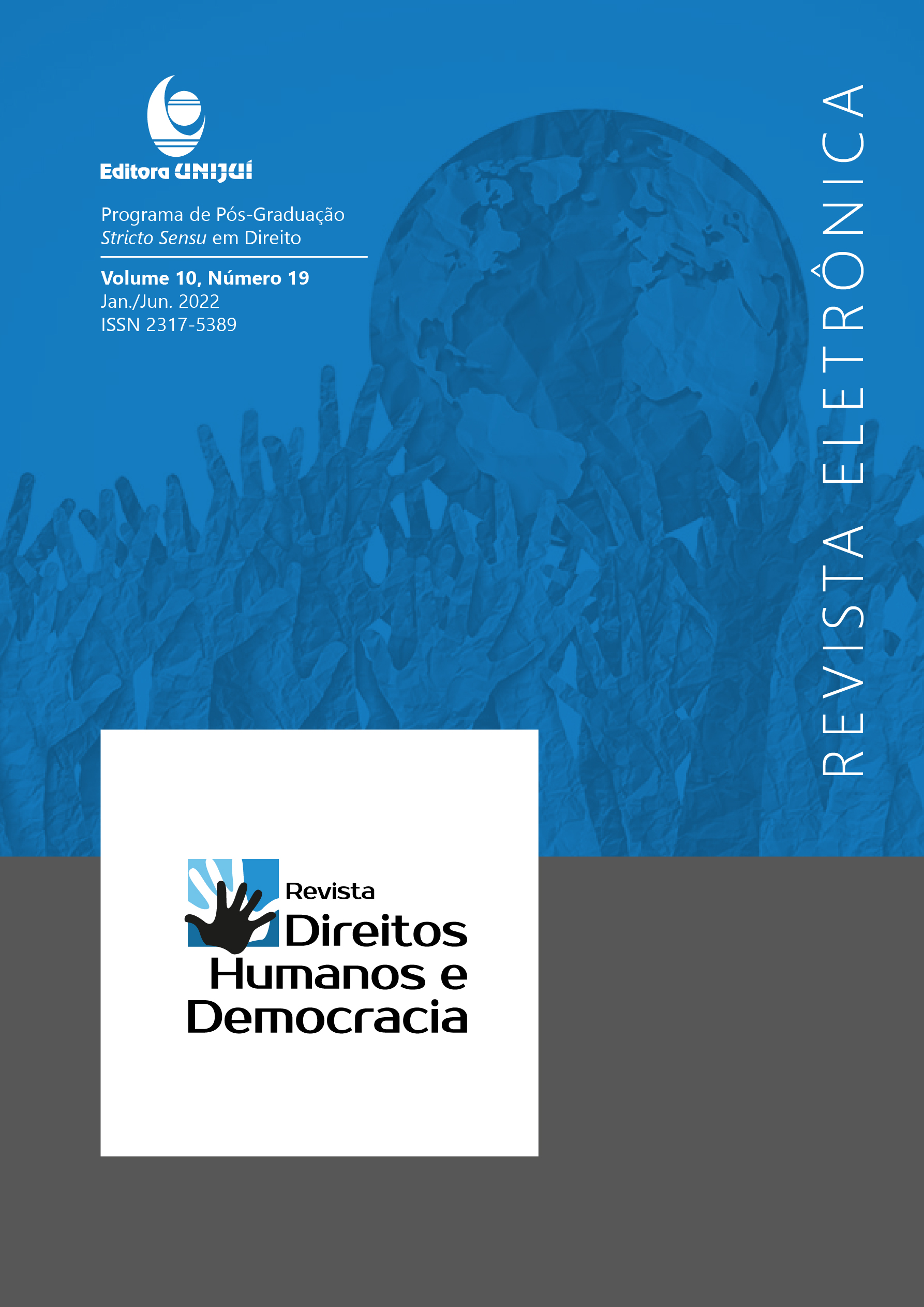Racism and neoliberalism as structuring subjective elements: from the colonial domination in frantz fanon to the psychopolitics of Byung-Chul Han
DOI:
https://doi.org/10.21527/2317-5389.2022.19.13341Keywords:
Colonialismo, Dominação, Imperialismo, Neoliberalismo, Psicopolítica., Racismo.Abstract
This article aims to analyze, albeit in an introductory way, the neoliberal mentality from the historical experience of colonialism from the perspective of psychic domination in Frantz Fanon and to verify how this notion communicates with the current definitions of psychopolitics by Byung-Chul Han, integrate and complement each other, starting from the central perception that neoliberal structures are constantly changing, aiming to create molded and "docile" subjectivities to the neoliberal project, analyzing how this process of "docilization" is linked to racism - whether as an experience , either as a generator of psychic submission - which is a structuring element of the neoliberal project in colonized countries through processes of domination and psychic submission in colonial, neocolonial and imperial models, strengthening and being useful to neoliberalism and evolved into an instance of self submission from the psychopolitical perspective of Byung-Chul Han. The present work is dedicated to developing reflections on how the phenomenon of racism and its connection with the neoliberal mentality fit and, in a way, contribute to the realization of Byung-Chul Han's psychopolitical analyses. Neoliberal governmentality will be approached as a governmental rationality of exclusion, which has in slavery the fundamental element of the capitalist economic systems of colonized countries, as well as the phenomenon of colonial psychic domination, studied by Frantz Fanon, and as the psychopolitics of Byung-Chul Han elevates these processes of submission in populations in colonized countries to a more intense degree, with racism as the technology for effecting this mentality of submission and inferiorization, aiming to meet the neoliberal project and how psychopolitical processes strengthen the neoliberal mentality of " entrepreneurship of the self”, based on this “psychopolitical subjection”, articulated in countries colonized by racism and by the processes of domination and psychic submission studied by Frantz Fanon. The hypothetical-deductive method and bibliographic analysis will be used to carry out this research.
Downloads
Published
How to Cite
Issue
Section
License
Copyright (c) 2022 Revista Direitos Humanos e Democracia

This work is licensed under a Creative Commons Attribution 4.0 International License.
By publishing in the Revista Direitos Humanos e Democracia, authors agree to the following terms:
Articles are licensed under the Creative Commons Atribuição 4.0 Internacional (CC BY 4.0), which allows:
Share — copy and redistribute the material in any medium or format;
Adapt — remix, transform, and build upon the material for any purpose, including commercial use.
These permissions are irrevocable, provided the following terms are respected:
Attribution — authors must be properly credited, with a link to the license and indication of any modifications made;
No additional restrictions — no legal or technological measures may be applied that restrict the use permitted by the license.
Notices:
The license does not apply to elements in the public domain or covered by legal exceptions.
The license does not grant all rights required for specific uses (e.g., image rights, privacy, or moral rights).
The journal is not responsible for opinions expressed in the articles, which remain the sole responsibility of the authors. The Editor, with the support of the Editorial Committee, reserves the right to suggest or request modifications when necessary.
Only original scientific articles presenting research results of interest, not previously published or simultaneously submitted to another journal with the same purpose, will be accepted.
References to trademarks or specific products are intended solely for identification purposes and do not imply any promotional endorsement by the authors or the journal.
License Agreement: Authors retain copyright over their articles and grant the Revista Direitos Humanos e Democracia the right of first publication.













